
Find Help
More Items From Ergsy search
-

How does alcohol tolerance relate to binge drinking?
Relevance: 100%
-

Can binge drinking lead to addiction?
Relevance: 69%
-

What is binge drinking?
Relevance: 68%
-

Are there cultural factors in binge drinking?
Relevance: 63%
-
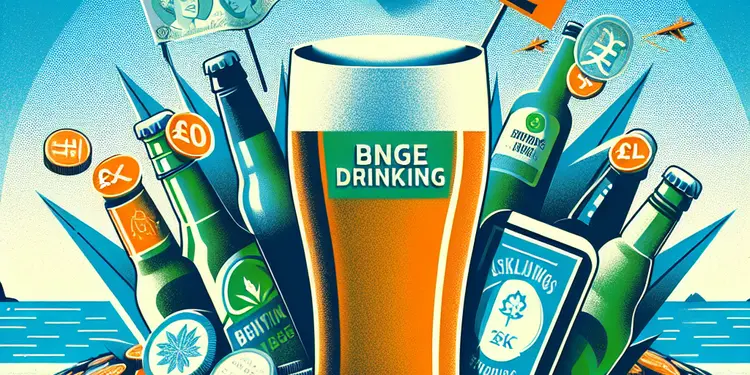
What are the risks associated with binge drinking?
Relevance: 62%
-

How does binge drinking affect the brain?
Relevance: 61%
-

Are there any laws against binge drinking?
Relevance: 61%
-

How is binge drinking typically defined?
Relevance: 60%
-

Can binge drinking affect physical health?
Relevance: 58%
-

What are the social consequences of binge drinking?
Relevance: 57%
-
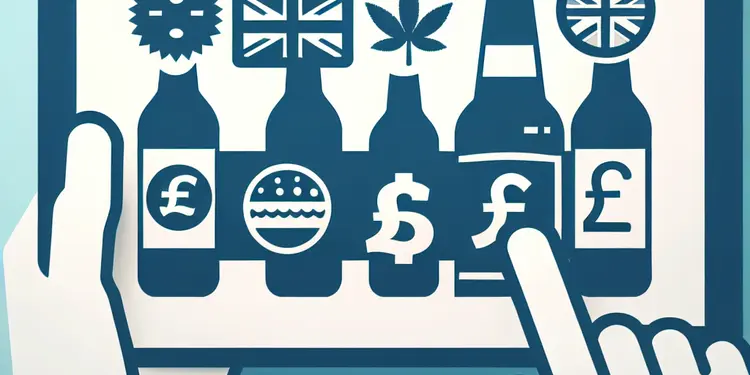
How can one reduce the risk of binge drinking?
Relevance: 57%
-

Why is binge drinking common among young adults?
Relevance: 57%
-

How does binge drinking affect mental health?
Relevance: 57%
-

What can be done to prevent binge drinking?
Relevance: 57%
-

Is binge drinking more common in any specific demographic?
Relevance: 57%
-

What resources are available for someone struggling with binge drinking?
Relevance: 56%
-

What is the role of peer pressure in binge drinking?
Relevance: 55%
-

How does binge drinking impact academic or work performance?
Relevance: 53%
-

What are the signs of binge drinking?
Relevance: 48%
-
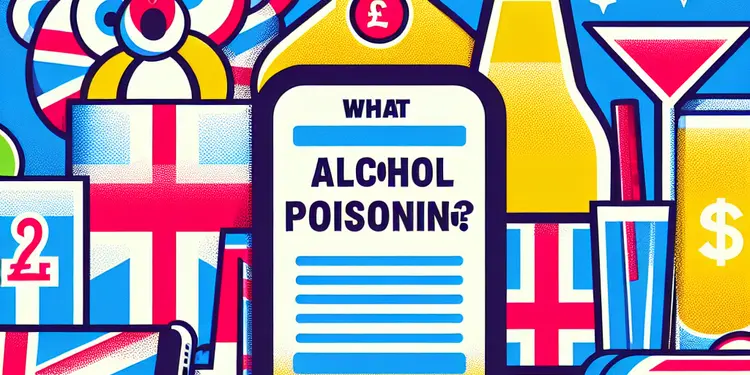
What is alcohol poisoning?
Relevance: 47%
-

What is safe alcohol consumption in Adults?
Relevance: 40%
-

5 Facts about Alcohol and Britain
Relevance: 39%
-

Alcohol Awarerness Week
Relevance: 35%
-

How quickly do symptoms appear after a drink has been spiked?
Relevance: 32%
-

How do I know if my drink was spiked?
Relevance: 32%
-
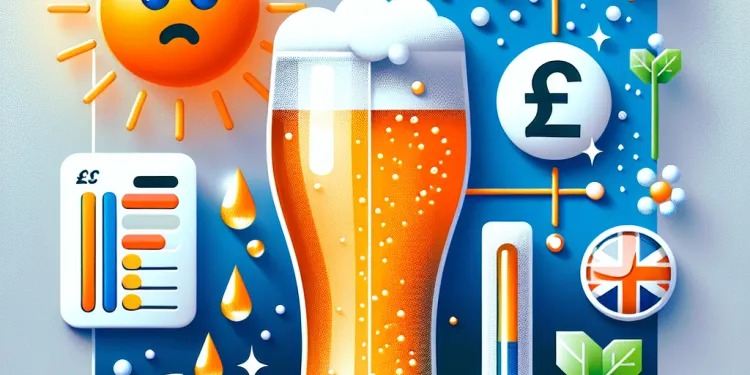
Should I avoid alcohol during a heatwave?
Relevance: 31%
-

How does regular caffeine consumption impact tolerance and blood pressure?
Relevance: 30%
-

FASD Foetal alcohol
Relevance: 29%
-
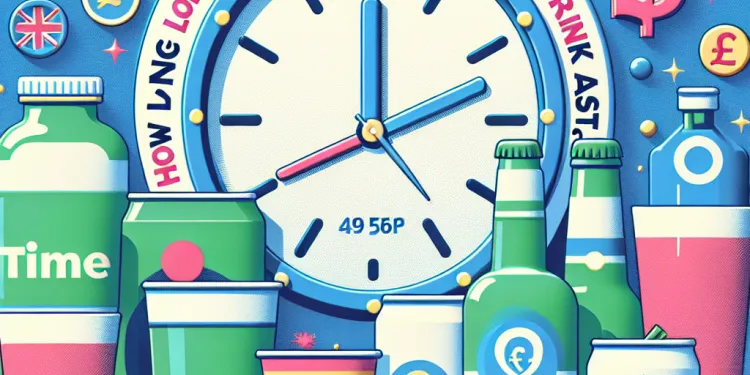
How long do the effects of a spiked drink last?
Relevance: 29%
-

Is it possible for alcohol alone to cause similar symptoms?
Relevance: 29%
-

What role does alcohol consumption play in bowel cancer risk?
Relevance: 28%
-

Can alcohol be consumed while taking Wegovy?
Relevance: 27%
-

Can I taste or smell if my drink has been spiked?
Relevance: 27%
-

Can alcohol worsen sleep apnea?
Relevance: 27%
-

Can drink spiking occur in private settings?
Relevance: 27%
-

Are men at risk of having their drinks spiked?
Relevance: 26%
-

What should I eat or drink if I have norovirus?
Relevance: 26%
-

Which drinks are exempt from the sugar tax?
Relevance: 26%
-

How can I reduce the risk of my drink being spiked?
Relevance: 26%
-

What drugs are commonly used to spike drinks?
Relevance: 26%
Understanding Alcohol Tolerance and Its Connection to Binge Drinking
Alcohol tolerance refers to the phenomenon where repeated consumption of alcohol leads to a reduced effect on the consumer over time. In essence, individuals with higher alcohol tolerance require a greater quantity of alcohol to achieve the same intoxicating effects that were previously attained with lower amounts. This biological and psychological adaptation can have significant implications for drinking behaviour, particularly in terms of binge drinking.
The Biological Basis of Alcohol Tolerance
Alcohol tolerance develops through various mechanisms, primarily metabolic and functional tolerance. Metabolic tolerance occurs when the body becomes more efficient at metabolising alcohol, often through the increased activity of liver enzymes. Functional tolerance, on the other hand, arises when the brain becomes less sensitive to alcohol's effects. As a person consumes alcohol more frequently, the central nervous system adapts, necessitating higher quantities to reach the desired level of intoxication.
The Impact on Binge Drinking Behavior
The development of alcohol tolerance can be a precursor to problematic drinking patterns, such as binge drinking. Binge drinking is defined as consuming a large quantity of alcohol in a short period, typically leading to intoxication. For men, this is often quantified as drinking five or more standard drinks in about two hours, while for women, it is four or more drinks in the same period. As individuals with high alcohol tolerance require more alcohol to feel its effects, they may engage in more frequent or intense binge drinking episodes.
Social and Psychological Influences
In the UK, cultural and social factors also play a crucial role in the relationship between alcohol tolerance and binge drinking. Social norms and peer pressure can encourage higher alcohol consumption, with individuals feeling compelled to match the drinking behaviours of their social groups. This social drinking environment can exacerbate the development of tolerance and encourage binge drinking as a socially acceptable behaviour, particularly among younger adults.
Health Risks and Considerations
It is important to recognise that high alcohol tolerance does not prevent the negative health effects associated with excessive alcohol consumption. Binge drinking poses numerous health risks, including liver damage, cardiovascular problems, and increased likelihood of accidents and injuries. Moreover, those with high tolerance may not recognise the signs of intoxication, putting them at greater risk of alcohol poisoning.
Concluding Thoughts and Public Health Implications
Understanding the dynamics between alcohol tolerance and binge drinking is critical in addressing public health challenges associated with alcohol misuse. Educational initiatives and interventions aimed at reducing binge drinking should consider the role of tolerance and aim to shift cultural perceptions around alcohol consumption. By promoting moderation and awareness, it is possible to mitigate the risks related to alcohol tolerance and binge drinking within the UK.
Frequently Asked Questions
What is alcohol tolerance?
Alcohol tolerance is the body's ability to metabolize and handle alcohol, which increases with repeated exposure over time.
How does alcohol tolerance develop?
Alcohol tolerance develops as the liver becomes more efficient at processing ethanol and as the brain becomes less sensitive to its effects, often due to regular drinking.
What is binge drinking?
Binge drinking involves consuming a large amount of alcohol in a short period, typically defined as 5 or more drinks for men, or 4 or more drinks for women, in about 2 hours.
Can alcohol tolerance lead to binge drinking?
Yes, individuals with higher tolerance may consume more alcohol to achieve the same effects, increasing the likelihood of binge drinking episodes.
Does binge drinking affect alcohol tolerance?
Yes, frequent binge drinking can increase alcohol tolerance, as the body adapts to process larger amounts of alcohol.
Is having a high alcohol tolerance safe?
A high alcohol tolerance is not necessarily safe, as it often encourages more consumption, which can increase the risk of alcohol dependency and health issues.
How can I decrease my alcohol tolerance?
Decreasing alcohol tolerance involves reducing alcohol intake over time, allowing the body's sensitivity to alcohol to reset.
Does a high alcohol tolerance mean less intoxication?
While a high tolerance might reduce immediate intoxication symptoms, the same level of impairment can occur with high alcohol consumption, just less noticeably.
Can alcohol tolerance vary between individuals?
Yes, alcohol tolerance varies due to factors like genetics, sex, age, weight, and drinking history.
Are there health risks associated with higher alcohol tolerance?
Yes, higher alcohol tolerance can lead to increased alcohol consumption, raising risks for liver disease, addiction, and other health problems.
What's the difference between alcohol tolerance and dependence?
Tolerance is about needing more alcohol to feel the same effects, while dependence involves a physical or psychological need for alcohol.
Can binge drinking reduce alcohol tolerance?
No, binge drinking typically increases alcohol tolerance as the body adapts to high alcohol levels.
Is it possible to have a high tolerance but not binge drink?
Yes, some individuals may have developed a high tolerance through regular moderate drinking, but this can still lead to health risks.
What are the signs of developing a high alcohol tolerance?
Signs include needing more alcohol to feel the effects, feeling less intoxicated after drinking, and drinking more frequently.
How is tolerance different from adaptation to alcohol?
Tolerance refers to the need for more alcohol for the same effect, while adaptation can include broader physiological changes allowing the body to better manage alcohol.
Can a low alcohol tolerance reduce the risk of binge drinking?
Potentially, as those with a low tolerance may experience negative effects more quickly, deterring excessive consumption.
Do people with higher alcohol tolerance suffer less hangovers?
Not necessarily, as hangovers are due to the body's reaction to alcohol and dehydration, which can affect anyone.
Does building alcohol tolerance affect long-term health?
Yes, consistently drinking more increases the risk of chronic diseases and alcohol-related harm.
Can lifestyle changes impact alcohol tolerance?
Yes, reducing alcohol consumption and improving overall health can decrease tolerance.
What should I do if I'm concerned about alcohol tolerance and binge drinking?
Seek advice from healthcare professionals and consider reducing your alcohol intake or seeking support from alcohol health services.
Useful Links
This website offers general information and is not a substitute for professional advice.
Always seek guidance from qualified professionals.
If you have any medical concerns or need urgent help, contact a healthcare professional or emergency services immediately.
Some of this content was generated with AI assistance. We’ve done our best to keep it accurate, helpful, and human-friendly.
- Ergsy carfully checks the information in the videos we provide here.
- Videos shown by Youtube after a video has completed, have NOT been reviewed by ERGSY.
- To view, click the arrow in centre of video.
- Most of the videos you find here will have subtitles and/or closed captions available.
- You may need to turn these on, and choose your preferred language.
- Go to the video you'd like to watch.
- If closed captions (CC) are available, settings will be visible on the bottom right of the video player.
- To turn on Captions, click settings .
- To turn off Captions, click settings again.
More Items From Ergsy search
-

How does alcohol tolerance relate to binge drinking?
Relevance: 100%
-

Can binge drinking lead to addiction?
Relevance: 69%
-

What is binge drinking?
Relevance: 68%
-

Are there cultural factors in binge drinking?
Relevance: 63%
-

What are the risks associated with binge drinking?
Relevance: 62%
-

How does binge drinking affect the brain?
Relevance: 61%
-

Are there any laws against binge drinking?
Relevance: 61%
-

How is binge drinking typically defined?
Relevance: 60%
-

Can binge drinking affect physical health?
Relevance: 58%
-

What are the social consequences of binge drinking?
Relevance: 57%
-

How can one reduce the risk of binge drinking?
Relevance: 57%
-

Why is binge drinking common among young adults?
Relevance: 57%
-

How does binge drinking affect mental health?
Relevance: 57%
-

What can be done to prevent binge drinking?
Relevance: 57%
-

Is binge drinking more common in any specific demographic?
Relevance: 57%
-

What resources are available for someone struggling with binge drinking?
Relevance: 56%
-

What is the role of peer pressure in binge drinking?
Relevance: 55%
-

How does binge drinking impact academic or work performance?
Relevance: 53%
-

What are the signs of binge drinking?
Relevance: 48%
-

What is alcohol poisoning?
Relevance: 47%
-

What is safe alcohol consumption in Adults?
Relevance: 40%
-

5 Facts about Alcohol and Britain
Relevance: 39%
-

Alcohol Awarerness Week
Relevance: 35%
-

How quickly do symptoms appear after a drink has been spiked?
Relevance: 32%
-

How do I know if my drink was spiked?
Relevance: 32%
-

Should I avoid alcohol during a heatwave?
Relevance: 31%
-

How does regular caffeine consumption impact tolerance and blood pressure?
Relevance: 30%
-

FASD Foetal alcohol
Relevance: 29%
-

How long do the effects of a spiked drink last?
Relevance: 29%
-

Is it possible for alcohol alone to cause similar symptoms?
Relevance: 29%
-

What role does alcohol consumption play in bowel cancer risk?
Relevance: 28%
-

Can alcohol be consumed while taking Wegovy?
Relevance: 27%
-

Can I taste or smell if my drink has been spiked?
Relevance: 27%
-

Can alcohol worsen sleep apnea?
Relevance: 27%
-

Can drink spiking occur in private settings?
Relevance: 27%
-

Are men at risk of having their drinks spiked?
Relevance: 26%
-

What should I eat or drink if I have norovirus?
Relevance: 26%
-

Which drinks are exempt from the sugar tax?
Relevance: 26%
-

How can I reduce the risk of my drink being spiked?
Relevance: 26%
-

What drugs are commonly used to spike drinks?
Relevance: 26%


